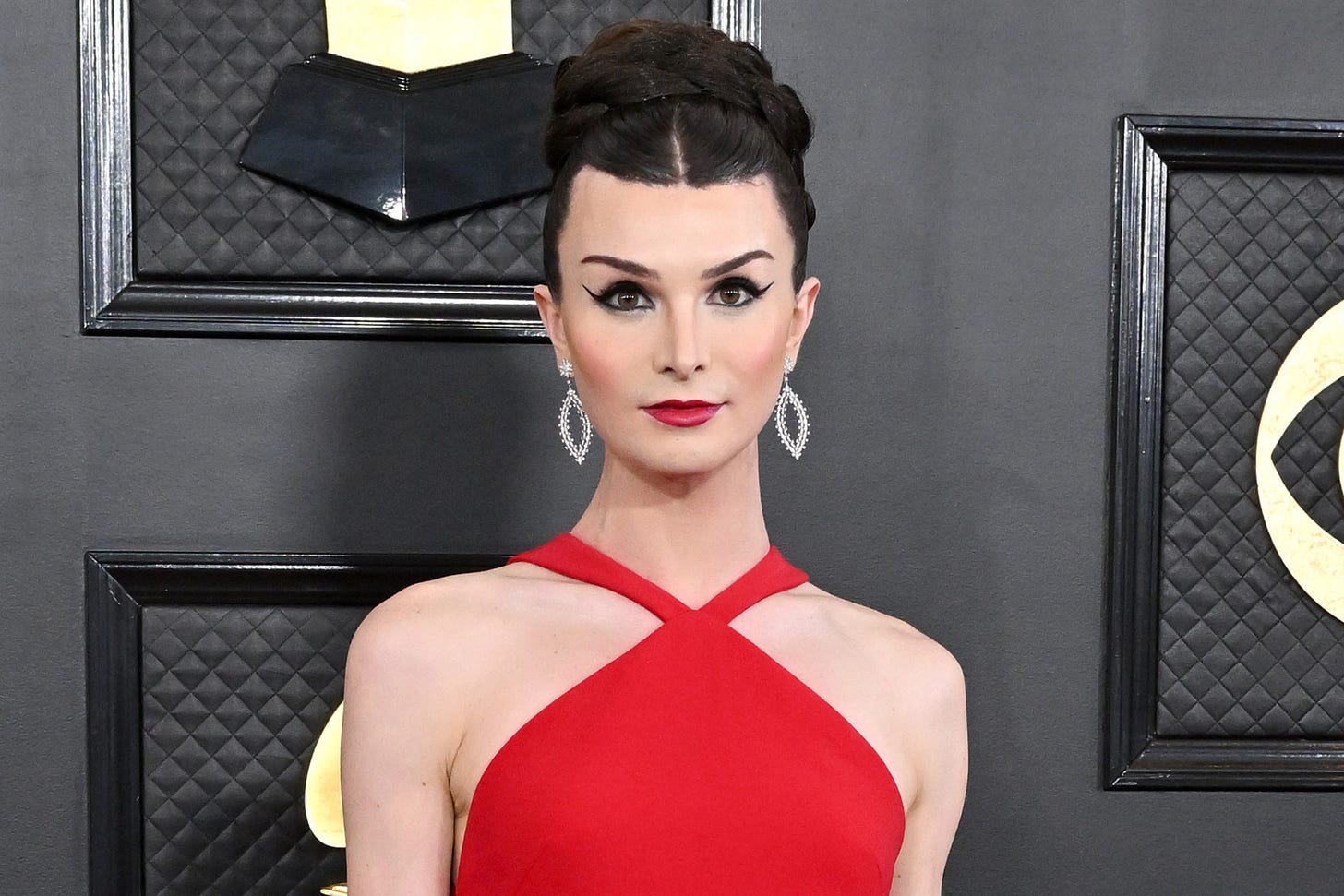I don’t pretend to understand all things trans. I try. But I don’t. I’m a nearly 60-year-old woman whose values were formed during the Nixon era watching Archie Bunker squirm around Sammy Davis Jr.
But that is not a valid excuse for not recognizing the humanity in other human beings. As someone committed to that recognition, I feel a responsibility to at least expose myself to the humanity of the trans community in an effort to break down the walls built by the culture I was raised in.
Twenty years ago, I was assigned to write a feature by a Florida publication on a trans woman who’d started her own radio station. I canceled and rescheduled the interview four times out of what I now know was fear. I knew no trans people in 2003. The concept was beyond my understanding. And I didn’t know how to manage my discomfort.
When I finally met Victoria, I admitted my trepidation. The grace she offered soothed my discomfort and enabled me to hear her story. I listened as she shared how employees at her local grocery store, who’d known her as a man, would ask questions and that she frequently stayed long after the store closed to answer them. How she would do anything to pave a smoother path for her trans siblings.
Employed at an enormous corporation when she decided to transition, Victoria was forced to bear witness to the malicious remarks and aggressive bullying the men in her department showered on another employee further along in her own transition. This made her journey so much more painful. She told me she lived in an old trailer in a mobile home park because it was all she could afford. Landlords weren’t chomping at the bit to rent to a trans woman who had a tough time finding a job because of her appearance.
The stories broke my heart open.
After meeting her, I got involved in the LGBTQIA community and learned all I could about the unfair hurdles so many trans folx encounter – the inability to find stable employment because their previous experience is listed in dead names, the continual blocks to good-quality mental and health care services, and the daily vitriol and danger they encounter for merely existing.
When I returned to my hometown eleven years ago, my focus became caregiving. Without regular reminders of the trans journey, I found myself slipping into thoughts that were dangerously close to TERF (trans-exclusionary radical feminist) territory.
Not liking how those thoughts made me feel and with my free time limited, I took advantage of the opportunity to get to know more trans folx through social media. Consuming content on TikTok from a variety of trans creators enabled me to hear the trials, tribulations, and joys of their lives and while the details of their challenges are different, I feel connected.
There’s @Lucy.Thinks.Aloud, a trained opera singer who openly discusses the discomfort of voice dysmorphia as she begins to sing as a female along with @JamesIsSmiling, a trans New Yorker who insists on expressing joy in the face of hatred yet is not afraid to display vulnerability when it gets to them.
Erin Reed
@ErinintheMorn educates me on the anti-trans legislation being proposed around the country and shares stories of living life as a trans women, including fears like traveling in the South with her daughter, especially around using a bathroom. @Alluring Skull, preparing for her own Facial Feminization Surgery, just raised over $2 million for trans healthcare with @MercuryStardust, who is committed to helping renters learn the repairs needed to keeping their homes safe.
@drelijahnicholas shares his journey of being a transman and the importance of representation while @MissKimberlyAnderson answers questions posed by non-trans people around topics like pronouns honestly. I have adored every moment of @IAmDaveFelton’s incredible journey to where they stand today.
Dr. Elijah Nichols
And let’s not forget @DylanMulvaney. The choice to publicly document her first 365 Days of Girlhood provided me with a human connection that goes beyond gender identity. Witnessing the challenges – dating, trolls, financial struggles, crippling insecurity, as well as the highs – attending NY Fashion week, meeting heroes like Laverne Cox, the process and results of her Facial Feminization Surgery, and the exquisite celebration she produced at the Rainbow Room, allowed me to see myself in her despite all our differences.
Dylan Mulvaney
The challenges of the trans community may not be mine, but any good writer knows universal understanding stems from specificity. I don’t know the pain of performing in a different voice because I’m now living as my authentic gender, but I have felt the wounds change can inflict. Facing vitriol is not part of my daily life, but I know what it’s like to be bullied and the sadness and fear that accompany it. And I understand the struggles of dealing with family, financial challenges, and the drudgery of daily life that so many of these creators discuss.
You can be outraged by the genocidal trajectory of current anti-trans legislation (I’m looking at you Florida, Texas and Oklahoma), but outrage and even laws that support trans equality aren’t enough to effect sustainable change.
This is only possible when we see ourselves reflected in the experiences of others; when we can place ourselves in the shoes they walk in. Supporting the trans community on social media offers the opportunity to return humanity to a group of people you may not “get” and provides a definitive answer to the question “Does understanding why someone is who they are necessary to see their humanity?”
If you’re inclined to go a step further and support the trans community financially, The Arcus Foundation has a fabulous list of organizations that provide legal support, healthcare and research.
Choose what feels right for you to explore. The important part for all of us is that you choose something.
First they came for the socialists, and I did not speak out—because I was not a socialist.
Then they came for the trade unionists, and I did not speak out—because I was not a trade unionist.
Then they came for the Jews, and I did not speak out—because I was not a Jew.
Then they came for me—and there was no one left to speak for me.
—Martin Niemöller




